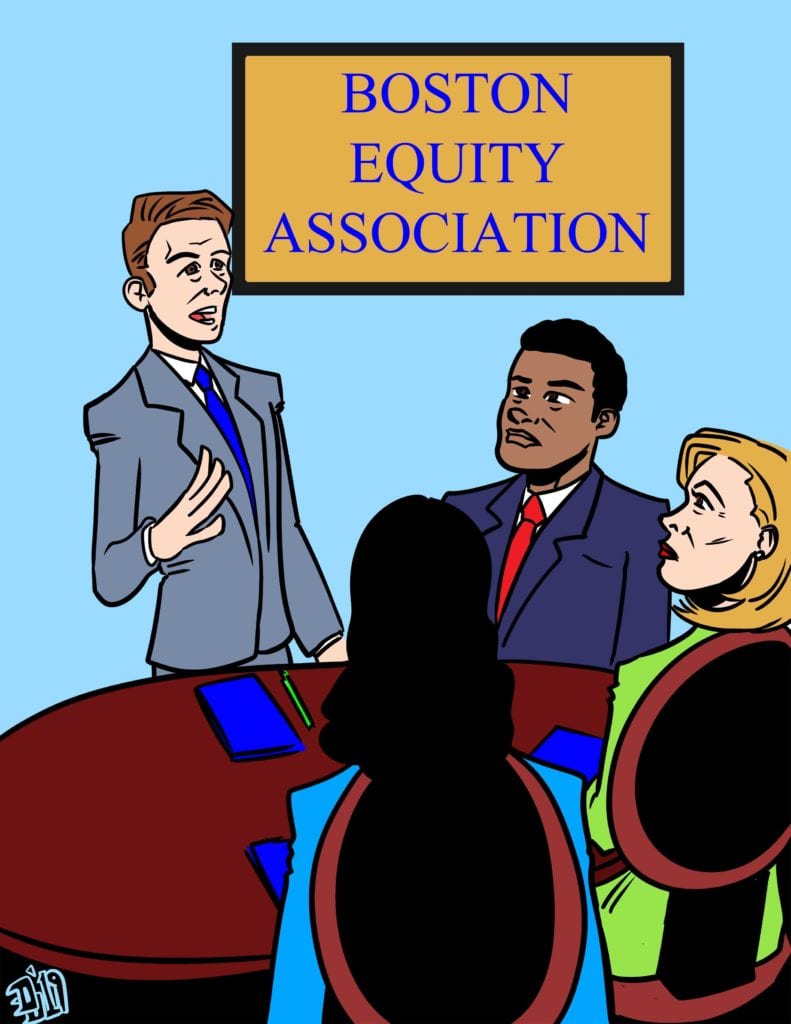
Roving Camera is a regular feature in the Bay State Banner. The purpose is to provide community residents an opportunity to express their opinions on relevant subjects. There was never any expectation to develop a statistically reliable consensus on the public’s state of mind. The number of respondents is always six, too few to consider their statements as a survey or a poll.
Nonetheless, Banner editors apply some rules to make the responses more meaningful. The Banner prints the first six coherent comments. However, only one response from a group speaking on the same issue will be used. The quality of the statements is determined by the careful phrasing by the senior editor of the question to be posed.
The Roving Camera question for the Banner issue of Aug. 22, 2019 provided an open opportunity for respondents to express extreme racist comments. The question was, “To what extent do you think distinctions between races are important?” The senior editor did not cherry-pick the answers. The first six were printed and they showed not only a range of reasonable responses, but a remarkable understanding of the nature of human differences that are classified as racial.
A wise elder once said, “It’s not the color that matters, it’s the culture.” Monalisa Callwood agrees with that proposition. She stated, “There are major differences between races, but it’s mostly culture.” According to Ashleigh, “Most people look at the differences. I think the differences and similarities balance out, though.”
Erina Miller is not confident that distinctions have equal impact. She asserts that “The differences are greater than what we share in common.” Brenda Hill is not impressed by differences. Her outlook is, “We’re all the same. We’re all the human family.”
Robert believes that distinctions between races are “not so” important. “What matters is how we treat each other. Whites treat us like second class citizens.” Shaunna shares this point of view. She is half white but identifies as black. Her opinion is that, “We share a lot in common, but we’re treated differently.”
All six respondents are African American, one man and five women. All responses were cordial. No one suggested that blacks belong to a superior race. Only one respondent suggested that the differences between races could be, “greater than what we share in common.” Also implicit in their responses was a rejection of the notion of white supremacy.
Those familiar with the tenor of race relations in Boston would agree that the attitudes of blacks as reported in the Banner are fairly accurate. Despite the history of racial discrimination here, there is little open hostility by blacks. Nonetheless, one wonders what the responses to the question would be if it were asked of whites in a neighborhood that had a high vote count for Trump in the 2016 primary.
It is easy to understand how people might find some of the cultural traits of another tribe to be unpleasant. However, it is self-defeating to violate one’s own highest principles of comity and justice to discriminate against the others who are ethnically different.
Boston is a multi-ethnic city. Business and community leaders are responsible for improving race relations.


![Banner [Virtual] Art Gallery](https://baystatebanner.com/wp-content/uploads/2024/04/Cagen-Luse_Men-at-store-e1713991226112-150x150.jpg)



